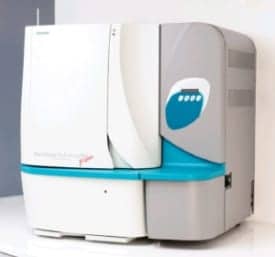C3-Jian Inc and Matrix Sensors Inc have announced a collaboration in which engineered peptides from C3-Jian will be used on Matrix Sensors’ microchip molecular detector arrays, allowing initial evaluation of a diagnostic assay platform for commercial use.
The use of engineered peptides can act as replacements for antibodies in antibody-panel type assays for specific biomarkers and provides several advantages, including efficiency in production, cost, reliability and robustness. In addition, a peptide array can alert to the presence of an unknown pathogen and provide a first step towards identification. Matrix Sensors’ technology provides an array of mass-sensitive detectors allowing direct detection of reacting molecules without the complexities typically associated with label-based systems. This provides a path to a simple, "dipstick" based diagnostic assay using a Matrix microchip and a C3-Jian peptide panel.
The combination of these diagnostics and species-specific targeting of antimicrobials, another C3-Jian technology, represents an opportunity for focused treatment. This approach represents a significant improvement beyond today’s current practice of using broad-spectrum antibiotics for bacterial infections, contributing to the emergence of drug-resistant strains. The ultra high analyte resolution and accuracy of the Matrix sensors allows attogram (one quintillionth of a gram) resolution of specific molecules, and is extremely well suited to the application of pathogen identification.
"We are extremely excited by the focus of the joint collaboration," said Wenyuan Shi, Ph.D., Chief Scientific Advisor at C3-Jian, and Professor of Microbiology at the UCLA School of Medicine. "These efforts will allow us to further develop selective, efficacious and safer treatment modalities for infectious diseases with easier to use, lower cost, ultra-sensitive, rapid pathogen detection."
Source: Matrix Sensors


